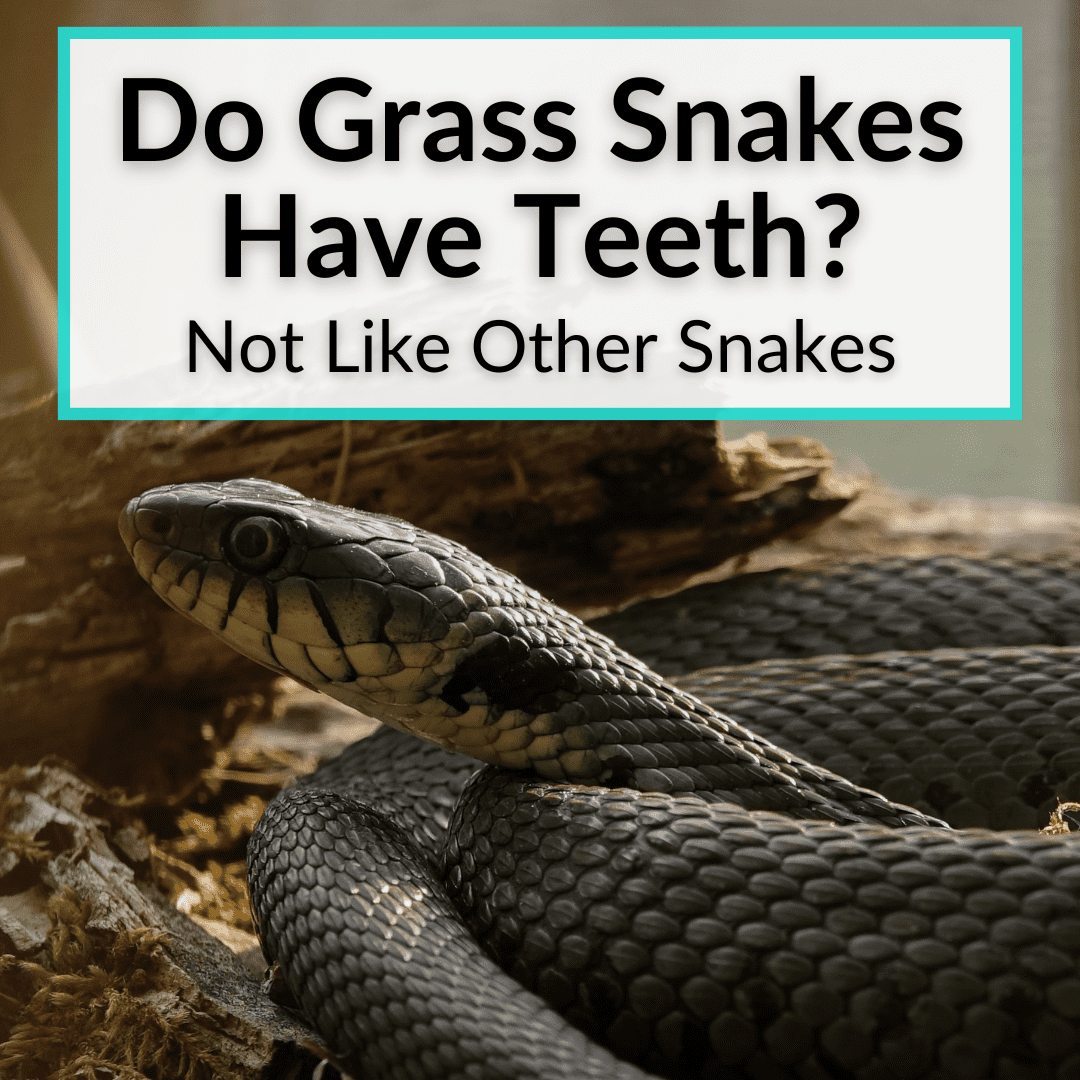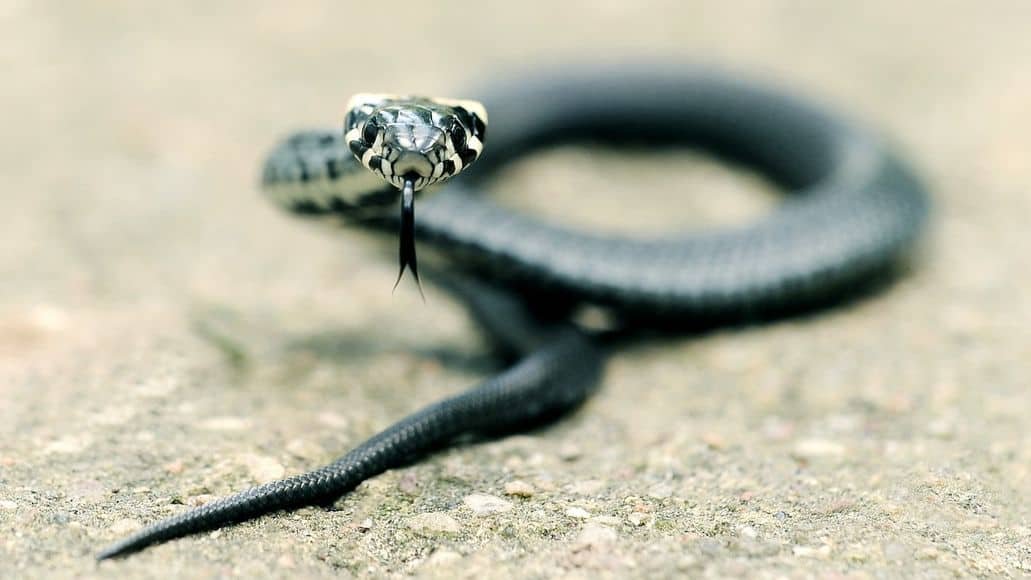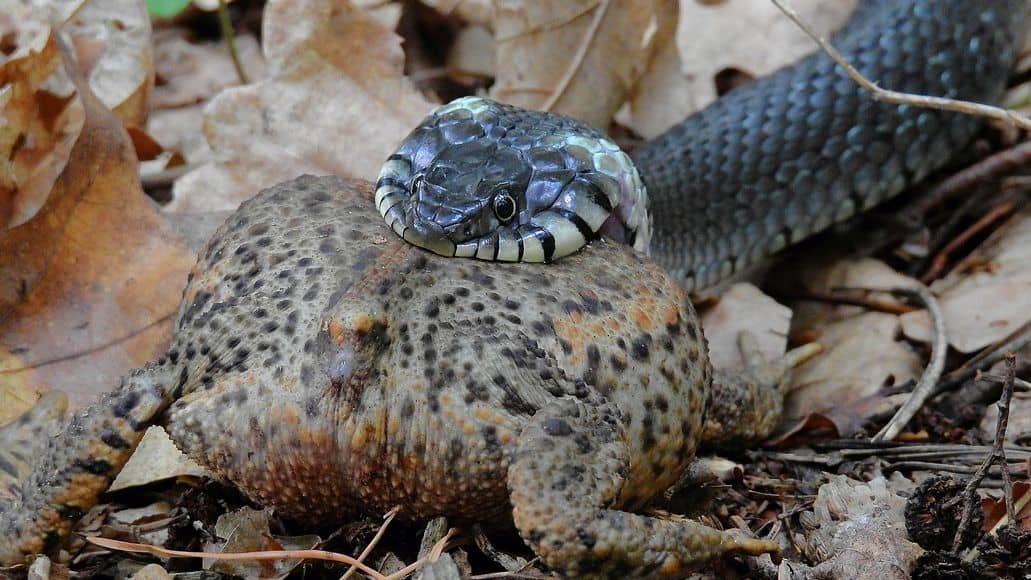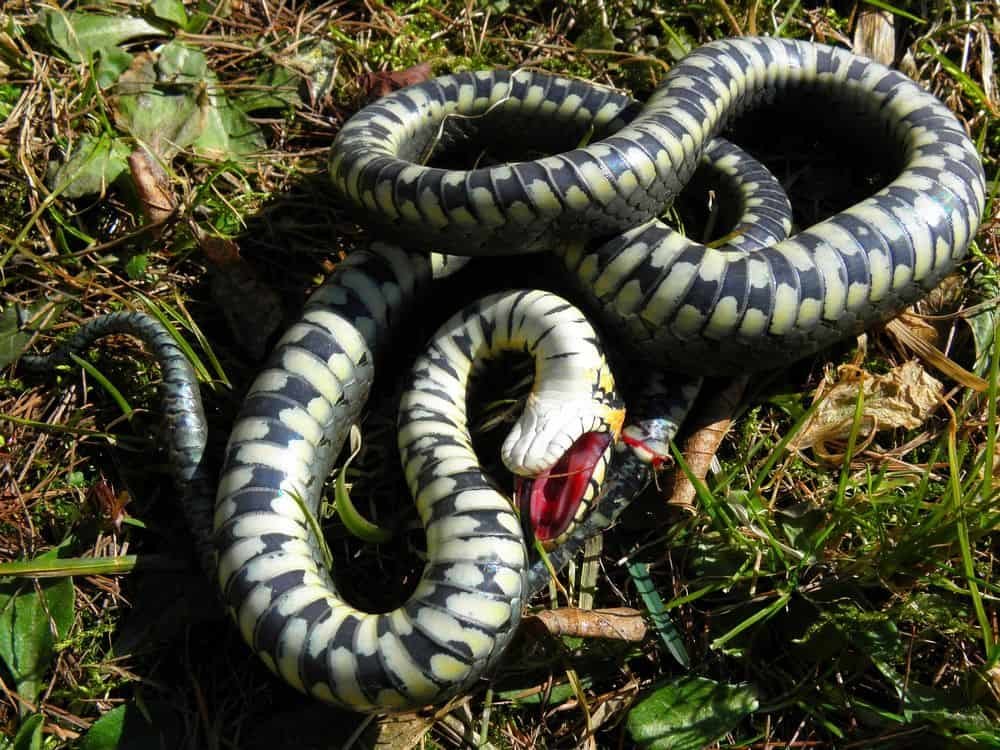
They even live in places that do not have many other snakes, like England and other parts of Europe.
If you run into one of these snakes, you have nothing to fear.
Grass snakes are afraid of us and they will quickly slither away and hide.
Even if they did want to harm us, they couldn’t.
Do that mean grass snakes do not have any teeth?
That’s what we’re here to find out. Keep reading to learn whether grass snakes have teeth and how they differ from other snake species.
Table of Contents
Do Grass Snakes Have Teeth?
Grass snakes do have teeth. However, unlike other snakes, they do not have fangs. Grass snakes have two rows of small teeth that run along their jaw.
This species of snake is completely harmless to humans. Not only do they not have large teeth, but they are also extremely shy. They do make good pets, because caring for a grass snake is quite easy.
Let’s take a closer look at the grass snake and learn some more about it. You’ll see that the kind of food it eats in the wild is the reason it does not have fangs like many other snakes.
Identifying A Grass Snake

Grass snakes mainly reside in Great Britain and they are one of the most common reptiles in this area. You can usually identify a grass snake by its interlinked black and yellow collar.
It will look like a band or ring at the bottom of the snake’s head. You can also find grass snakes in Asia, Africa and other European countries.
A grass snake’s body is a light brown or olive-green color with black marks running down its entire length. The snake’s underbelly is a much lighter color, sometimes even a cream or whitish shade. It also has black marks running down it.
These snakes can grow up to three feet long. That does not sound long to us in the US or people in other countries with many large snakes, but considering the UK doesn’t have that many snake species, 3 feet is considered rather long in that country!
Grass snakes don’t bite and are harmless to humans, so there is no need to worry if you do come across one. Even if it does seem gigantic to you!
Diet

Grass snakes love water, so it comes as no surprise that a staple in their diet is fish. They also love to eat amphibians like newts, toads, and frogs. It’s very rare that a grass snake will eat rodents like mice.
This is one reason grass snakes don’t have fangs. As I’m sure you can imagine, creatures like frogs and fish are much easier for a snake to consume and swallow. They are also less squirmy.
A grass snake doesn’t need to inject venom into its prey, or strangle it, to kill it first. It can simply grab the prey and just swallow it live.
Predators
Due to a grass snake’s lack of sharp teeth and its timid personality, it lends itself as easy prey for a number of animal species. Common predators of the grass snake include badgers, foxes, hedgehogs, birds, and even the odd domestic cat.
If a predator does manage to catch a grass snake, the snake will release a foul-smelling substance from its anal gland. It may also strike with its head as a way of defence.
If it has not been caught by its predator, then it may entirely stop what it’s doing and play dead. It will do this by curling in on itself and leaving its mouth gaping open with the tongue lopped to one side.

The aim of this is to make the predator become less interested in the snake. For example, a domestic cat would only be interested in hunting a snake as part of a game, as I’m sure you can imagine, if you have a cat.
Cats like chasing things and trying to catch them. They would most likely lose interest, if the snake were no longer moving.
Can Grass Snakes Hurt You?
Grass snakes cannot hurt you. They non-venomous and they don’t constrict. Plus, they are also very timid creatures. If you come across one, it may very quickly dart away or may even feign death.
Because they aren’t venomous, they don’t have many areas of defence. Pretending to be dead means predators may not bother to attack them.
If a grass snake is continuously handled, it may even discrete a foul smell and this will be enough to send anyone away from them.
Do Green Grass Snakes Bite?
It is very rare for a green grass snake to bite. Green grass snakes are commonly found in North America and are non-venomous. Just like other grass snakes, the green grass snake is also a very timid creature and will flee if it feels threatened.
Grass Snakes Have Teeth: Final Thoughts
Grass snakes have teeth, but their teeth are short and small. They are similar to garter snake teeth. They do not have fangs. A grass snake can not do us any harm, but it is extremely rare for them to try anyway.
These snakes do everything they can to avoid us and trying to bite would be an absolute last resort. First they would blast you with foul-smelling anal secretions (ok, maybe getting bit would be better), try to head-butt you, or play dead.
Leave a Reply